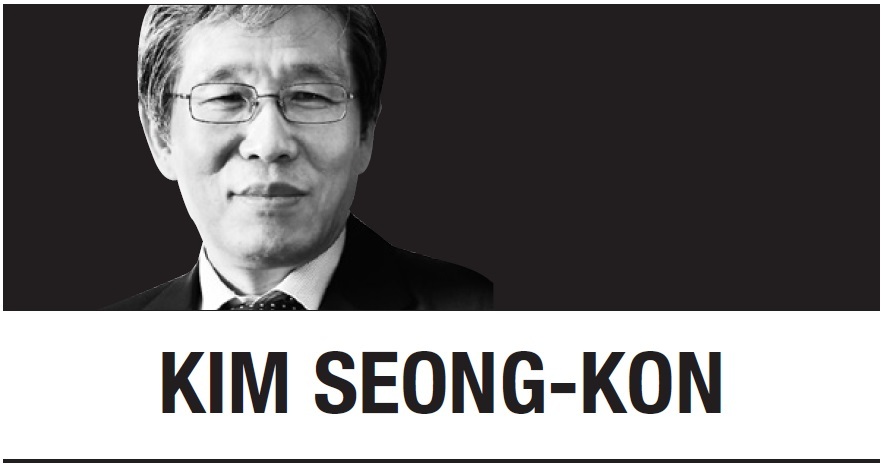
Last week was the 69th anniversary of the Korean War. Although it was such a tragic war in which the Korean Peninsula suffered the annihilation of millions of lives, few people seem to remember it now. Many of those who experienced the war have long since died of old age and those who were babies or young children during the war are now in their 70s. When it comes to the Korean War, most Koreans do not know or care about it at all, except for the ambiguous descriptions in secondary school history books.
The Korean War seems to have become a completely forgotten war even in Korea.
The problem is that as George Santayana warned in 1915, “Those who cannot remember the past are condemned to repeat it.” And as Winston Churchill paraphrased, “Those who failed to learn from history are condemned to repeat it.” In order not to repeat the same tragic past, therefore, we need to remember the Korean War always and never forget it. And we also should learn lessons from the war. Otherwise, we will end up repeating our tragic history and even be doomed to perish.
We find Poland very similar to Korea in many respects. Bordered by Germany and Russia, Poland was invaded first by Germany and then the Soviet Union, thereby enduring very considerable hardships in the 20th century. Surrounded by China, Japan and the Soviet Union, Korea, too, had to endure turbulent political crises last century. After World War II, Poland became a communist country until the fall of the Soviet Union in the early 1990s. In the case of Korea, communists have occupied half of the Peninsula since 1948.
Reading Ismail Kadare’s splendid novel, “Chronicle in Stone,” which is based on Kadare’s childhood in a small city in Albania, we also find the striking similarities between Korea and Albania. Albania, which is located in the Balkan Peninsula, was invaded by the Italian fascists in 1939 and then by the Greek Army that fought the Italian troops with the aid of British air raids that frequently bombed the small country. Then Nazi Germany occupied Albania in 1943.
The young protagonist in Kadare’s novel observes that the villagers see the Italian flag hanging on the city administration building today, the Greek flag the next day and then the Italian flag again, like a ritual ceremony. Finally comes the flag of Nazi Germany. The novel ends there, not depicting anything after the German invasion. But history tells us that after Germany lost the war Albania became a communist country controlled by the Soviet Union. Thus, the flag of the Soviet Union, too, must have hung at the Albanian city administration building.
This is all too familiar to the Korean Peninsula. The Korean people saw on their soil the Japanese flag from 1910 to 1945 and then the Soviet flag in the North, the American flag in the South from 1945 to 1948. During the Korean War that broke out in 1950, similar things happened: The South Korean flag today, the North Korean flag the next day and then back to the South Korean flag again. Then came the Chinese flag, the US flag and the UN flag thereafter.
Since the division of the country in 1945, South Korea has been under constant threats from North Korea. According to experts, North Korean leaders have never given up the plan to unify the Peninsula under the red flag. To make matters worse, North Korea has nuclear weapons now, in addition to deadly biochemical weapons and numerous submarines.
That is why we should be alert to the aggressions of the North. Young Koreans who do not know how relentlessly and ruthlessly communism destroys people and makes them miserable should read Yan Lianke’s book of essays, “Me and My Father’s Generation,” in which the author vividly depicts rural people’s miserable lives during the Cultural Revolution in China. In the book, the author recollects confiscation of land by the government, summary trials, street executions and the starvation of approximately 10 million people during natural disasters that lasted for three years. History tells us that under the banner of communism, so many people have suffered tyranny and destitution.
Thomas Peterffy said, “Socialism and Communism are extremely attractive to a superficial observer. It is not until you get into the details, or actually experience it, that it becomes apparent that it does not work.”
Emanuel Celler, too, wrote, “Communism feeds on aggression, hatred, and the imprisonment of men’s minds and souls.”
Lech Walesa also warns us, “Communism is a monopolistic system, economically and politically. The system suppresses individual initiative, and the 21st century is all about individualism and freedom. The development of technology supported these directions.”
If we turn a deaf ear to such warnings and are naively intoxicated with the wrong political ideology, we might end up seeing hostile foreign flags lavishly fluttering above our soil again. If that is not what we want, we should remember and learn from history.
Kim Seong-kon
Kim Seong-kon is a professor emeritus of English at Seoul National University and a visiting professor at the University of California, Irvine. -- Ed.








